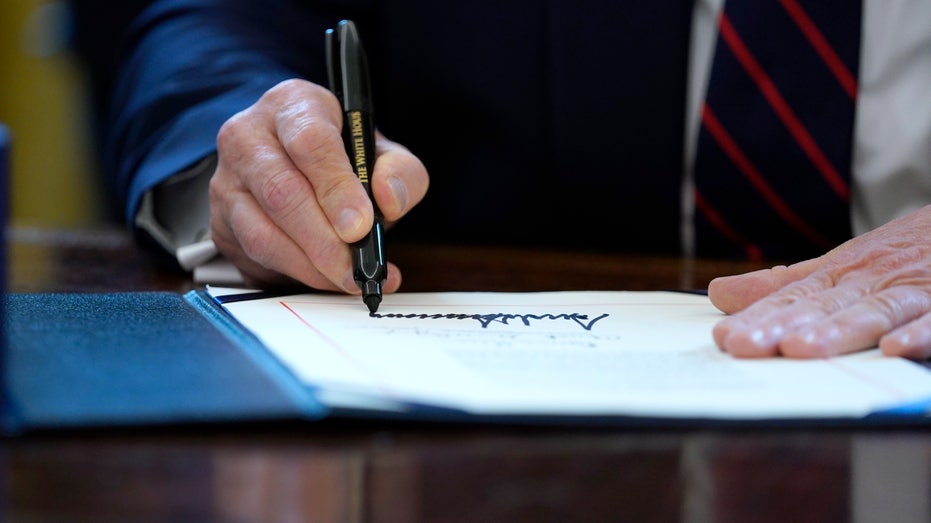12 reasons you haven't received a stimulus check
Check these common 12 issues that are causing delays in coronavirus stimulus checks
Get all the latest news on coronavirus and more delivered daily to your inbox. Sign up here.
A little over five weeks ago, lawmakers passed and President Trump signed into law the largest economic stimulus package in U.S. history.
The $2.2 trillion Coronavirus Aid, Relief, and Economic Security (CARES) Act was constructed out of necessity after the spread of the coronavirus disease 2019 (COVID-19) shut down nonessential businesses throughout much of the U.S. and put in excess of 26 million people out of work in a period of four weeks.
As you might imagine, the CARES Act is primarily geared at helping businesses make it through a truly unprecedented time. Some $500 billion was set aside for distressed businesses, another $350 billion was directed toward small business loans, and $260 billion was used to expand the unemployment benefits program. But what Americans care about most is the roughly $300 billion allocated toward direct stimulus payouts.
STILL NO STIMULUS CHECK IN YOUR BANK ACCOUNT? WHY IT MAY BE DELAYED
These payouts, officially known as Economic Impact Payments, recently began hitting workers' and seniors' bank accounts via direct deposit. People who qualify for the maximum amount of stimulus money will receive $1,200, with married couples filing jointly eligible for up to $2,400. Qualifying children aged 16 and under can also add $500 per child to what a household or parent receives.
Yet the question likely on the minds of tens of millions of Americans at this very moment is, "Where is my stimulus check?"
Though an estimated 175 million people are expected to receive an Economic Impact Payment, recent figures show that only 88 million have thus far received their payouts. The answer as to why tens of millions of Americans still haven't received a stimulus check likely boils down to one of the following 12 scenarios.
1. You made too much money
One of the simplest reasons you haven't received an Economic Impact Payment might be because you made too much money.
The Internal Revenue Service (IRS) is utilizing your most recent federal tax filing to determine your eligibility for a payout (either tax year 2018 or 2019). If you're a single, married, or head-of-household filer with a respective adjusted gross income (AGI) below $75,000, $150,000, and $112,500, you qualify for the maximum Economic Impact Payment. But if your AGI is above $99,000 as a single filer, $198,000 as a married couple, or $136,500 as head-of-household in your most recent filing, you won't receive a dime. Folks with AGIs that fall in between these figures will receive a reduced payout.
WHO WON'T GET A STIMULUS CHECK?
2. You're age 17 or older and were claimed as a dependent
Another reason you haven't received any stimulus money could be because you were claimed as a dependent by someone else, such as a parent or family member. While dependents aged 16 and under can add $500 per child to what a household or parent receives, dependents aged 17 and up, which includes senior dependents receiving Social Security, aren't eligible to receive a stimulus check.
3. Your payout went to a temporary account created by a tax-prep service
One of the biggest reasons your stimulus money is delayed might be because you used a tax-preparation service in a previous year. Tax-prep services often set up temporary accounts for their customers that act as a first landing spot for a federal refund or, in this case, an Economic Impact Payment. These temporary accounts allow tax-prep services to remove any fees and then forward the money to a client's bank account.

FILE - In this March 27, 2020 file photo, President Donald Trump signs the coronavirus stimulus relief package in the Oval Office at the White House in Washington. Economic stimulus checks have already begun hitting some bank accounts — and fraudster (Associated Press)
When stimulus payouts were made in 2008, some 20 million taxpayers had this happen to them, eventually requiring the IRS to issue them paper checks.




















